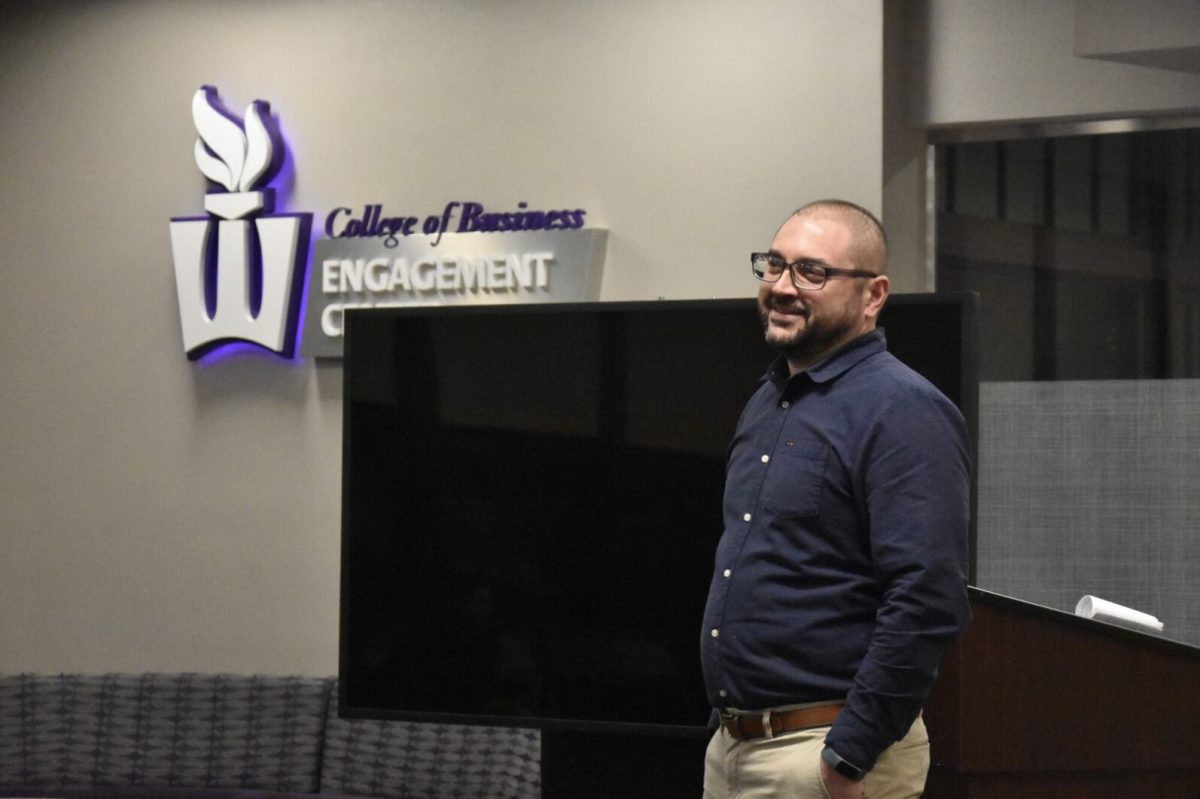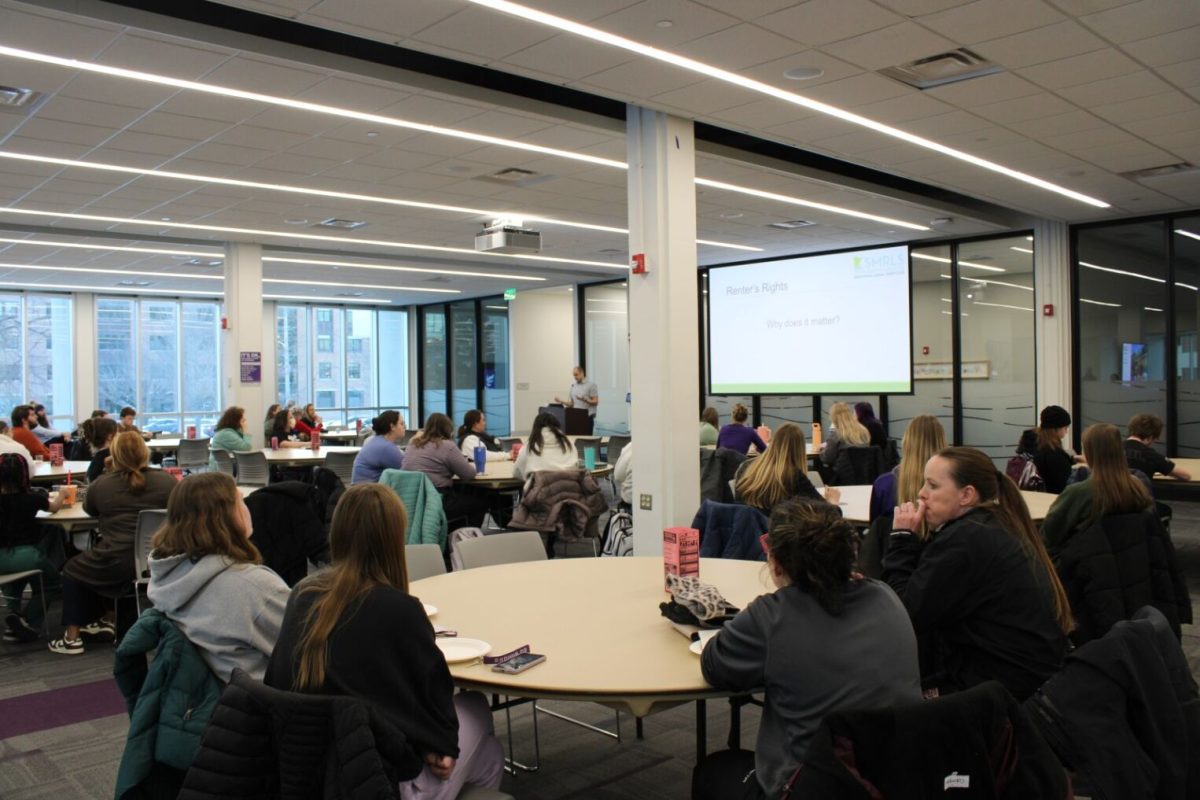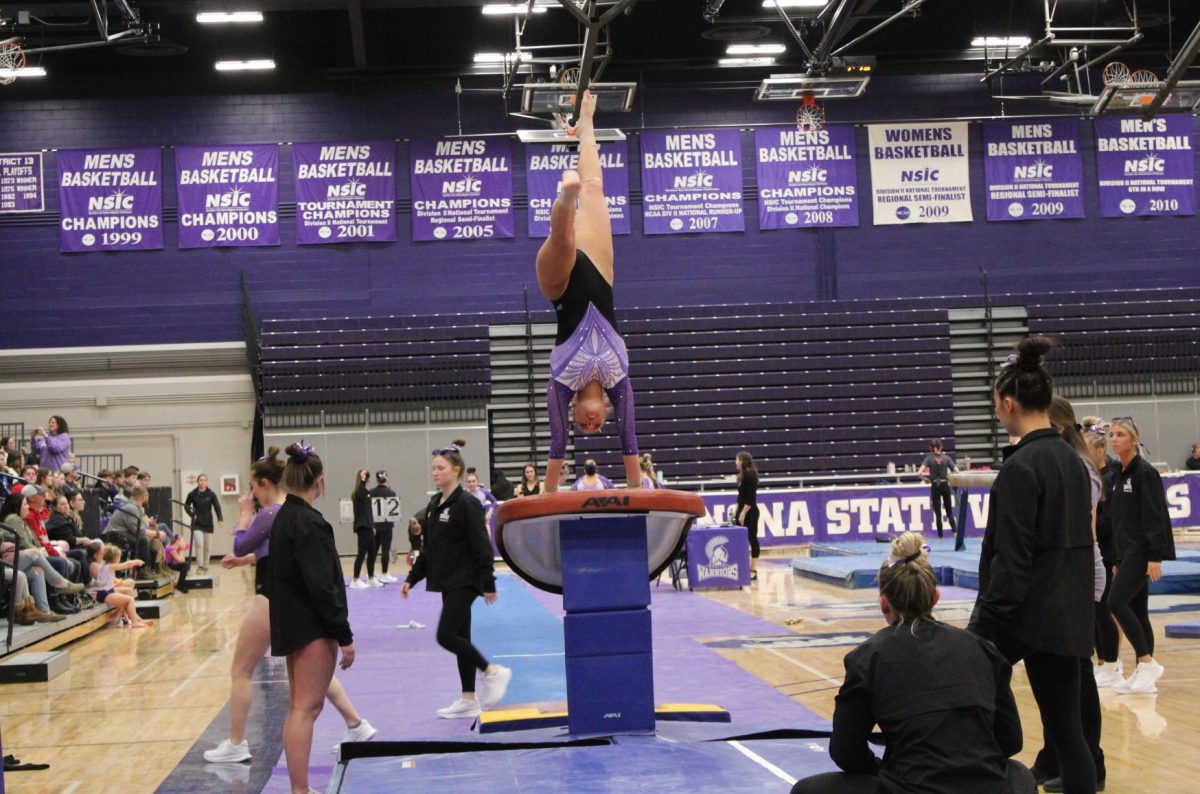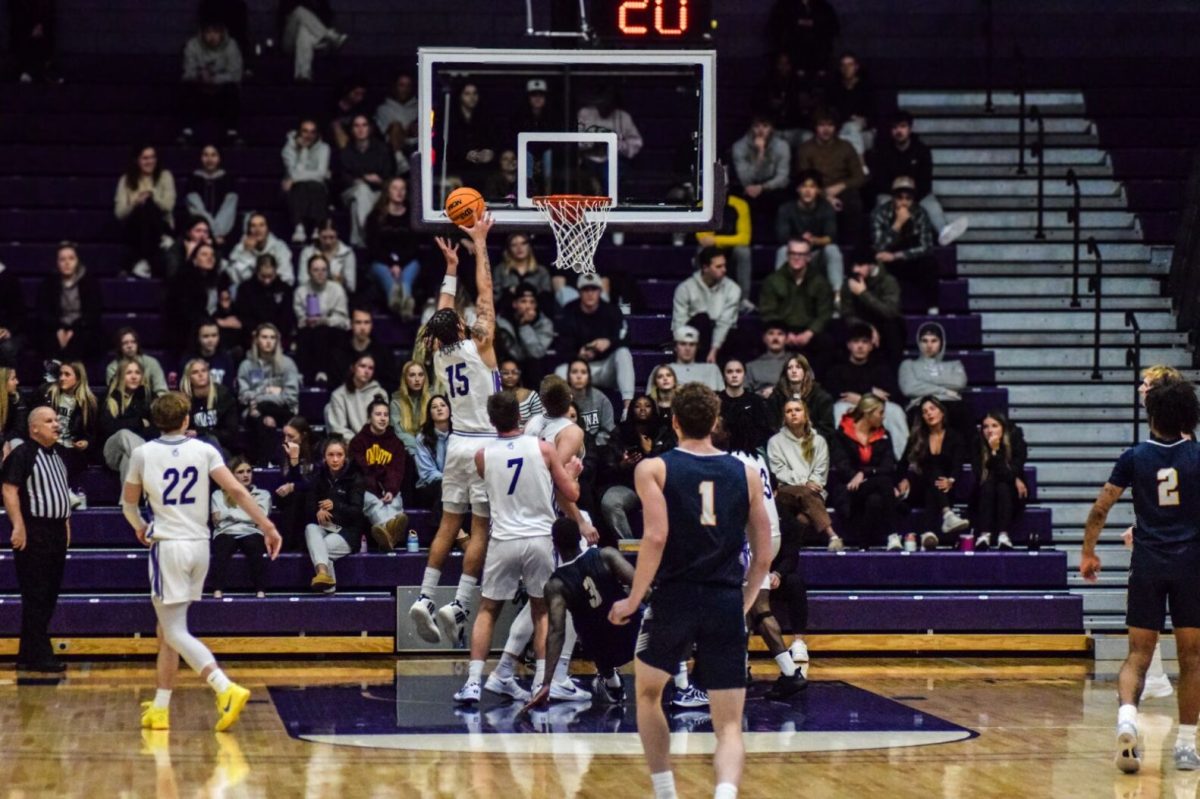Andrew Fitzgerald/Winonan
Spring has arrived, and along with it the return of March Madness, an immensely popular basketball championship tournament for college campuses nationwide.
Beginning on March 18 with the “First Four” and continuing through to April 7, March Madness is the informal name for a single-elimination tournament organized by the National College Athletic Association (NCAA). It is held to determine the national championship out of 68 prominent college basketball teams.
The popularity of this event is evident at Winona State University. Last week nearly every television set in Kryzsko Commons was tuned into the numerous games being played, and vast numbers of students gathered to shamelessly root for their chosen teams.
While many students form pools and place bets, others opt to fill out their own bracket individually.
The appeal of this event is not limited to students. Winona State faculty are known to participate as well. Caroline
Morris, a professor in the history department, is one such person.
“I almost always fill out a bracket or two,” Morris said. “And I usually find the time to watch several of the games.
Because a great deal of my research has involved the history of twentieth-century American sports, I have a personal interest in college basketball. But I am part of some longstanding pools, too.”
After the “First Four” games, the Second Round involves 64 teams divided into four sections: South, West, East and Midwest. On March 22, the third round dropped the number of competing teams to 32.
Continuing on, the next round is known as the “Sweet 16,” followed by the “Elite 8,” the “Final 4,” and eventually leading to the decisive championship game on April 7.
But it’s not always fun and games. A recent statement released by the Minnesota Department of Human Services zeroed in on the problems that arise on college campuses nationwide during March Madness.
According to the National Council of Problem Gambling (NCPG), 67 percent of all college students bet on sports, and so March is seen as a month where this issue could further manifest itself.
The statement goes on to note the risk of class attendance dropping off during March Madness, although this does not seem to be an issue on our particular campus.
“I’ve never noticed class attendance affected by the tournament,” Morris said. “One year, I stumbled on a student streaming a game in class.” Morris said this incident didn’t happen at Winona State, adding it was unlikely it ever would.
“I gave him the option of accepting a zero for his daily participation grade or giving a five-minute report to the class about the rise of women’s college basketball ca. 1900. He gave a great report.”
Still, March Madness has a huge presence at Winona State already, and it has only just begun.








































